Posted on 6/13/2024
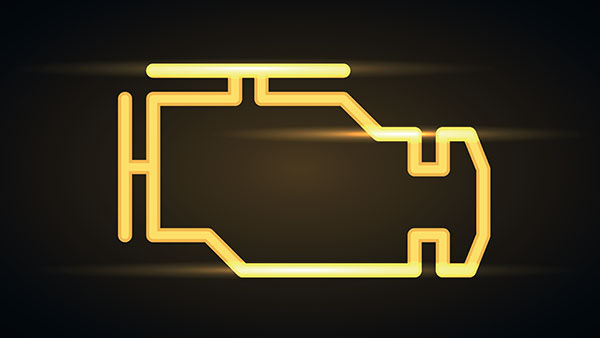
You're cruising down the highway on your way back home, when suddenly, the dreaded check engine light illuminates on your dashboard. It's a common scenario that leaves many drivers feeling anxious and uncertain. But what does a free check engine light scan really mean? And do you still need to have a shop diagnose your problem? Check Engine Light - Decoding the Signal The check engine light serves as a warning system, alerting drivers to potential issues with their vehicle's engine or emissions system. When this light comes on, it's essentially your car's way of saying, "Hey, something's not right." However, it's important to note that the check engine light doesn't pinpoint the exact problem; it simply indicates that there's a fault code stored in the vehicle's onboard diagnostic system. Free Check Engine Light Scan - What Does It Really Mean? Many auto parts stores and repair shops offer fr ... read more
Posted on 5/31/2024

Why Does My Car A/C Feel Warm? Imagine a sweltering summer day, and you hop into your car, craving the soothing relief of air conditioning. You turn the A/C on, only to be greeted by warm, lackluster air instead of the refreshing cool breeze you anticipated. Frustration sets in, and you wonder, "Why is my A/C blowing warm air?" Today, we will explore the possible reasons behind this unusual A/C behavior. Low Refrigerant Levels: The blood of your A/C system lies in the refrigerant, a vital coolant responsible for cooling the air. Low refrigerant levels might be the culprit if your A/C blows hot air. Leaks in the system can cause refrigerant loss over time, hampering your A/C's ability to chill the air. Faulty Compressor: The air conditioning system's compressor is akin to the heart of the A/C system, as it pressurizes the refrigerant, enabling the cooling process. If the compressor malfunctions or fails, warm air will be all your A/C can muster. Clogged Condenser ... read more
Posted on 5/7/2024
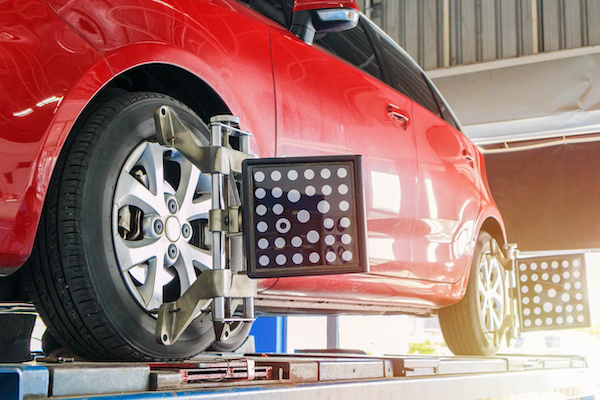
Have you ever wondered why your car seems to pull to one side, or why your tires wear unevenly? The answer may lie in your vehicle's alignment. Proper wheel alignment is essential for maintaining optimal handling, tire wear, and overall vehicle performance. The Importance of Alignments Alignment refers to the adjustment of a vehicle's suspension components to ensure that all four wheels are positioned correctly relative to each other and the road surface. Proper alignment helps your car maintain straight-line stability, improves handling and cornering ability, and reduces tire wear. Without proper alignment, your vehicle may experience issues such as uneven tire wear, steering pull, and decreased fuel efficiency. Proper Wear and Tear on Tires One of the most noticeable effects of poor alignment is uneven tire wear. When your wheels are not properly aligned, they exert uneven pressure on the tires, causing certain areas of the tread to wear down more quickly than others. Thi ... read more
Posted on 4/19/2024
.jpeg)
Ever stood by your car, staring at the sidewall of your tires, and wondered what those numbers and letters mean? You're not alone. These numbers aren't just random; they're the key to understanding crucial aspects of your tires, from size to load capacity. But fret not, we're here to decode this numerical puzzle for you. By the end of today's article, you'll be reading tire numbers like a pro, making tire shopping or maintenance a breeze. Understanding the Aspect Ratio The aspect ratio of a tire refers to the height of its sidewall in comparison to its width. For example, if the aspect ratio is 55, it indicates that the height of the tire is 55% of its width. Lower aspect ratios generally correspond to wider tires, which may result in improved handling and stability. Deciphering the Service Description At the end of the tire size sequence, you'll find a service description. This includes a number, representing the maximum load the tire can handle ... read more
Posted on 4/5/2024
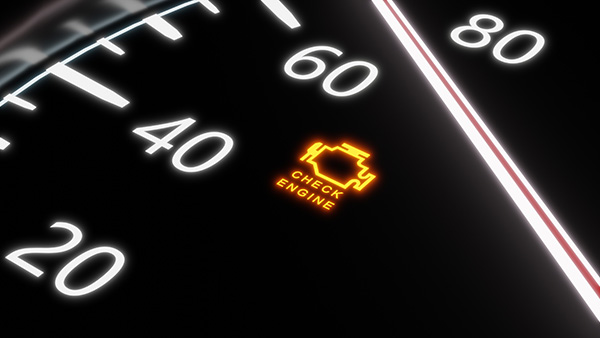
When the check engine light comes on while driving, does panic set in? Is it a minor issue, or could it spell trouble for your vehicle? Should you opt for a free scan or invest in a professional diagnosis? For a video on what the various vehicle warning lights mean, skip to the bottom of this page. What is The Check Engine Light For The check engine light serves as your vehicle's early warning system, indicating potential issues with the engine, transmission, or emissions system. When it illuminates, your car's onboard computer has detected a problem, prompting a diagnostic trouble code (DTC) to be stored in its memory. While the light itself doesn't pinpoint the exact issue, it signals the need for further investigation. The Risks of Ignoring the Check Engine Light Ignoring the check engine light might be tempting, but it can result in more severe and ex ... read more
Posted on 4/2/2024
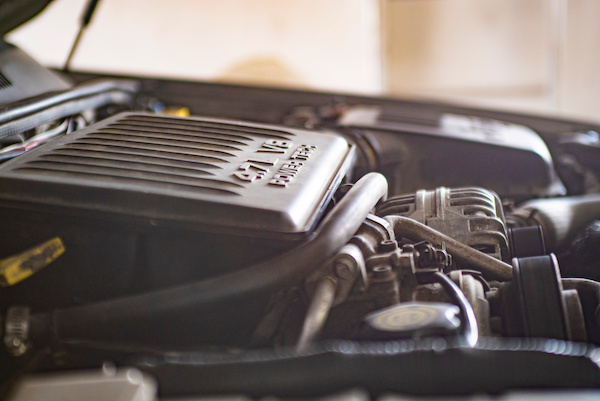
Check out the video below Engine Air Filter 101 Let's start with the basics - the engine air filter is a relatively humble part of your car's engine system, but its importance cannot be overstated. It's essentially a barrier that stands between the outside world and your engine, preventing contaminants like dust, dirt, leaves and debris from entering your engine's delicate inner workings. Why is it So Important?Clean Air, Happy Engine Your car's engine operates by mixing air with fuel and igniting this mixture to produce power. If the air entering the engine is filled with dirt and particles, these will contaminate the mixture, leading to incomplete burning and soot. If the particles are big or hard enough, they can damage the engine. The engine air filter ensures that only clean air reaches the engine, crucial for efficient combustion and overall engine health. Improved Fuel Efficiency When ... read more
Posted on 1/30/2024
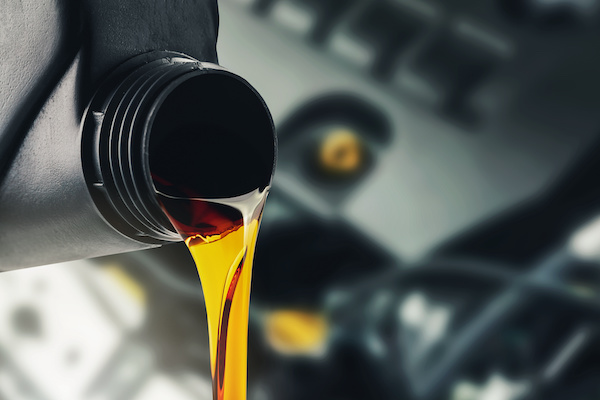
Oil plays a crucial role in keeping your engine running. While getting regular oil changes is common knowledge, many drivers still have a flurry of questions about this routine maintenance task. To help shed light on the subject of oil changes, here are some of the most frequently asked questions. Let's demystify the world of oil changes so that you can be better informed on how to care for your car. Q: How often should I change my oil? A: The frequency of oil changes depends on your vehicle's make, model, and driving habits. Many vehicles have service reminders built in but some do not. As a rule of thumb, change oil every 5,000 miles when using synthetic and every 3,000 miles for conventional. Many shops will put a sticker in the corner of the windshield to record the mileage when the next oil change is due. Q: Can I use any type of oil for my car? A: Different vehicles require different types of oil. Your owner's manual wil ... read more
Posted on 11/27/2023
.jpeg)
Today we would like to highlight the often-overlooked synergy between the alternator and battery. Together, they form a crucial partnership that drives the seamless operation of your vehicle's electrical system. What Does The Battery Do? The battery serves as the initial power source, supplying electricity to start the engine and power the vehicle's electrical components when the engine is not running. It stores chemical energy in the form of lead plates and sulfuric acid, converting it into electrical energy to power the starter motor during ignition and supporting the electrical system when the engine is not operational. The battery acts as a reservoir of electrical energy, providing the necessary power for various vehicle functions, including lights, audio systems, and other electronic accessories. What Does The Alternator Do? Complementing the role of the battery, the alternator serves as a generator, converting mechanical energy ... read more
Posted on 10/13/2023
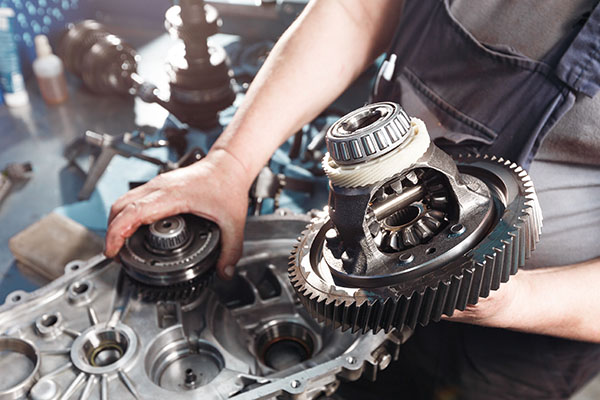
Are you hearing or feeling unusual noises or vibrations while driving? Is your car having trouble shifting gears or are the RPMs climbing abnormally? These are all symptoms of a transmission going bad - ignoring them can result in costly repairs or even transmission failure. But how do you know if your transmission is failing? Early detection of transmission problems can save you hundreds, if not thousands, of dollars while also preventing further, more serious damage to your vehicle. Here's a list of five of the most common symptoms of a bad transmission to help you out. 1. Check Engine Light The most obvious sign is your trusty dashboard check engine light. While it's not the most pleasant of views, it can save you from disaster. The check engine light can be a warning for many things. One of them is transmission problems. If you see this light turning on, make sure to have it checked out at your local repair shop. ... read more
Posted on 9/16/2023
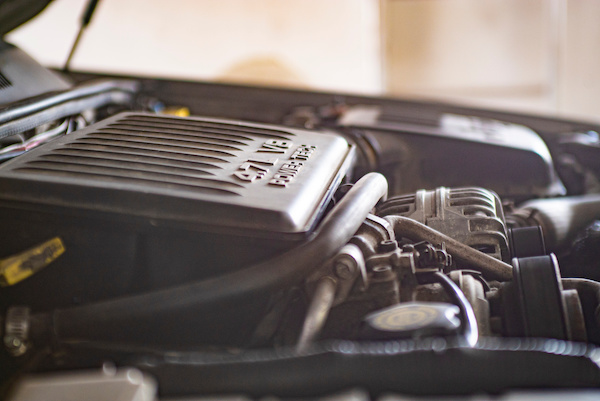
If you have ever heard of a Hemi engine, you probably only know that it's put in the fast muscle and race cars or something along the lines. Well, partially true it's also used in a lot of other vehicles. That's because it pushes a lot of horsepower while being just like a normal engine - with a slight change hinted at in its name. Read along to find out what Hemi stands for and its pros and cons. Hemi Engines Explained The Hemi or Hemispherical V8 engine differs from all other engines with its cylinders' shapes. The top of the cylinders is a flattened hemisphere at the center, which is a spark plug, fuel/ air injectors, and an exhaust valve. This particular shape provides a much lower loss of heat, therefore, more power. The first Hemi engines were equipped with hemispherical cylinders, which were not that good. That's why today's Hemis have a flatter cylinder design than their predecessors. The first one was introduced in 1953 on the Dodge Red Ram, fo ... read more